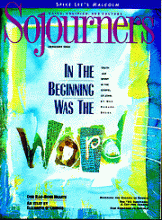We have not had to look far to read stories of the lives of people in Central and South America. You Can't Drown the Fire: Latin American Women Writing in Exile was edited by Alicia Portnoy and published by Cleis Press in 1988. In 1989 Brenda Carter, Kevan Insko, David Loeb, and Marlene Tobias edited A Dream Compels Us: Voices of Salvadoran Women (South End Press). The following year Scott Wright, Minor Sinclair, Margaret Lyle, and David Scott edited El Salvador: A Spring Whose Waters Never Run Dry (EPICA). It is within this setting that Renny Golden has authored The Hour of the Poor, The Hour of Women: Salvadoran Women Tell Their Stories, wherein the words of Salvadoran women powerfully confront us. Golden captures these women's hopes, pain, anguish, suffering, dreams, and commitment unto death.
This work focuses on those organizations that include only women members. Many of the women began their organizing in the campo (countryside) among the workers on the coffee plantations. One woman involved in such work, Hortensia, remembers:
After a long time of working like this (hard work, minimum wage, leaving children alone during the day),...we discovered it was necessary to struggle. We realized the poor worked very hard while the few became rich. We saw a need to protest....We workers organized to say the salaries weren't just.
The richness of women's involvement is also shown by their work in the labor unions. Febe Velasquez, who initially worked for a U.S. corporation in El Salvador and as a result became involved in the labor unions, was killed in October 1989 when her office--the National Federation of Salvadoran Workers--was bombed by the Salvadoran military.
Read the Full Article

